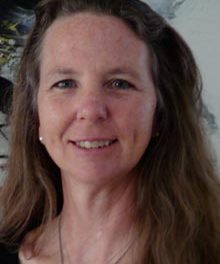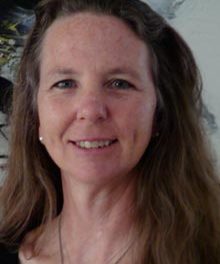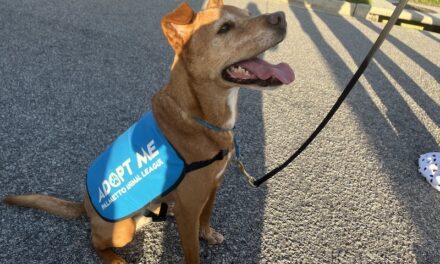 The Recipe for Connection
The Recipe for Connection
Network Authentically – Part 2 of 6
I find myself struggling to write about networking. Yet when I examine that statement I am astounded. The essence of humanity, after all, is interconnectedness. Humans, by nature, are not solitary creatures – although some, like me, often seek solitude.
This past week I read books that were very different on the surface from each other and yet…at the core, not so much. I finished the Divergent series by reading first Divergent, then Insurgent, and finally, Allegiant, all by Veronica Roth. I read Raising Cain, Protecting the Emotional Life of Boys by Dan Kindlon and Michael Thompson. I read The Slight Edge by Jeff Olson. And earlier I read several books by Jeffrey Gitomer, among them The Little Black Book of Connections. Although Gitomer’s books tend to focus on sales and don’t make top ten lists of business networking books, I find his books to be more relevant because they focus on giving – and you can’t give without someone there to receive.
The Divergent series takes us through a fictional world that, as Shrek would say, requires peeling layers of an onion to uncover substance. Each time we think we know the truth we view things from a larger perspective and find the situational levels more complex than we at first perceived; everything we hold to be true and worth fighting for is perhaps not true in the sense we understand and there are forces at work that alter our assessment. Yet ultimately it’s learned, as it always is throughout history, that what matters is love, friendship, each other, and being brave enough to live and love life.
Raising Cain is a book I’ve had on my shelf for years but finally had the sense to open. Even if you don’t have sons, or you have sons who are now grown, this is a book not to be missed. It provides insight into your husband, your father, your brother, your son, your friend, your coworker – and your own reactions and choices in your life whether you are male or female. Primarily it discusses the ability, or lack of it, to communicate emotions, to know the language and the nuances of pain, frustration, hurt, betrayal, rejection, confusion, regret, failure, unworthiness, and so much more. Don’t let me oversimplify and lead you to believe it is a touchy-feely academic treatise on anger-management or filled with “how does that make you feel?” blather. Rather, it presents insightful clarity as to why schoolyard, movie theaters, and mall shootings might happen as well as how surreptitiously early potential deteriorates and midlife turns to apathy and misery from incidents that seemed perhaps insignificant years earlier. It is written in hopes of heading things off at the pass, to offer tools to support boys as they grow so damage isn’t inflicted to begin with or if it is, to have methods to help. And it also offers effective guidance and wisdom for recognition of well-hidden inner conflict so that it may be healed at any point. In Raising Cain, as in the Divergent series, the take-away is how desperately we all want to belong, be loved, be whole, be happy, be seen and heard and praised for our efforts and understood in our short comings. In other words how important it is for us, equipped with mastery of the language of emotion, to be connected with one another.
As always when I am profoundly moved, and influenced, by a book (and I am often and easily influenced by the written word) I impulsively purchase several copies that I then send to friends and family. Anyone close to me has an extensive library whether they want it or not! Raising Cain and The Slight Edge are two such books. (And anyone who wants easy reading and entertainment will enjoy the Divergent series.)
The closing page of the Divergent series amazingly echoes a core theme in The Slight Edge. I don’t want to divulge the ending but ultimately any action-adventure story succeeds because we have been brought to care about the lives revealed within the story. And in any life, bursts of activity and drama are interspersed with the mundane, more tedious aspects of daily living. A hero must sleep and eat and suffer boredom and disappointment just like the rest of us. We read in apt anticipation of what happens next because we grow as the hero grows. As author Maggie Schein so aptly and eloquently wrote recently,
“I realize…I have been a voracious reader my whole life. But I never ever liked the question, ‘what is the book about?’ Not for books I write and not for books I read. I read selfishly, like a starving soul. Like an addict. I don’t read for what a book is ‘about.’ I read for what a book does for me. Each story, each turn of phrase its own medicine. I write for the same reason. For what a story might do for someone. I read The Old Man and the Sea because what it does for me is remind me of the simplicity and beauty of both human and animal struggle and of compassion. I read The Little Prince, not because it is ‘about’ what it is about, but because it gives me a pure, tender poignancy of the heart…and reminder that I never want to be an adult for whom some else’s heart aches so much for my pain that he must dedicate it to the child I once was. I read Paulo Cohelo because his stories make me smile at the intersection of paganism and devout Christianity…they make me feel like holistic seeking is possible. I read Louise Erdrich because her books remind me that there is magic in the ordinary. I read for what books do for me, not for what they are ‘about.'”
We may, therefore, have access to a hero’s edge simply by reading of the hero. And we can turn to non-fiction, such as The Slight Edge, to be reminded that there is power in the ordinary choice; when something is easy to do it is also easy not to do. It may feel as if time stands still but given that it never ever does we either move towards a gifted life or away from it, one easy-not-to-do choice at a time. Get up on time, or hit the snooze button missing 10-15 minutes of meditation. Sit on the couch, or do 10 minutes of stretching you promised yourself you would do. Reach for the celery sticks or the potato chips. That last one may not be easy but it is a small choice. The challenge with small choices is their seeming insignificance at the time. What harm can one cigarette do today? And yet, compounded over time, there is no turning back from the quite clear end result of thousands of such small choices.
Meanwhile, imagine a Hobbit without the essence of the Shire and all its inhabitants to define and drive him. How compelling would the Hunger Games be if Panem and its residents weren’t core to Katniss’ psyche? The driving force behind heroic action is often the preservation or conservation of others. We are all interconnected. Personalities, culture, upbringing, age, religion, socio-economic grouping aside, we love, we mourn, we hope, we fear, and we want to believe in ourselves and in each other. We don’t want to be lonely, we don’t want our children to be lonely, and we don’t want our aging parents to be lonely. We long for that connection, meaning, purpose, and hope. Therefore, networking is an essential, integral component supporting our growth, our purpose, and our desires. Rather than fear it, shun it, or approach it as mechanical or artificial, it is nothing more and nothing less than a common ingredient in the recipe of life.
Beaufort resident Jamie Wolf is the author of “Start Over! Start Now! Ten Keys to Success in Business and Life” available on Amazon with 10 accompanying guidebooks. She has started over a number of times and now focuses on helping people who are ready to Start Over with their health
and wealth through getting fit, feeling fabulous, and becoming financially free. She can be reached at jamie.wolf@thestartover.com





